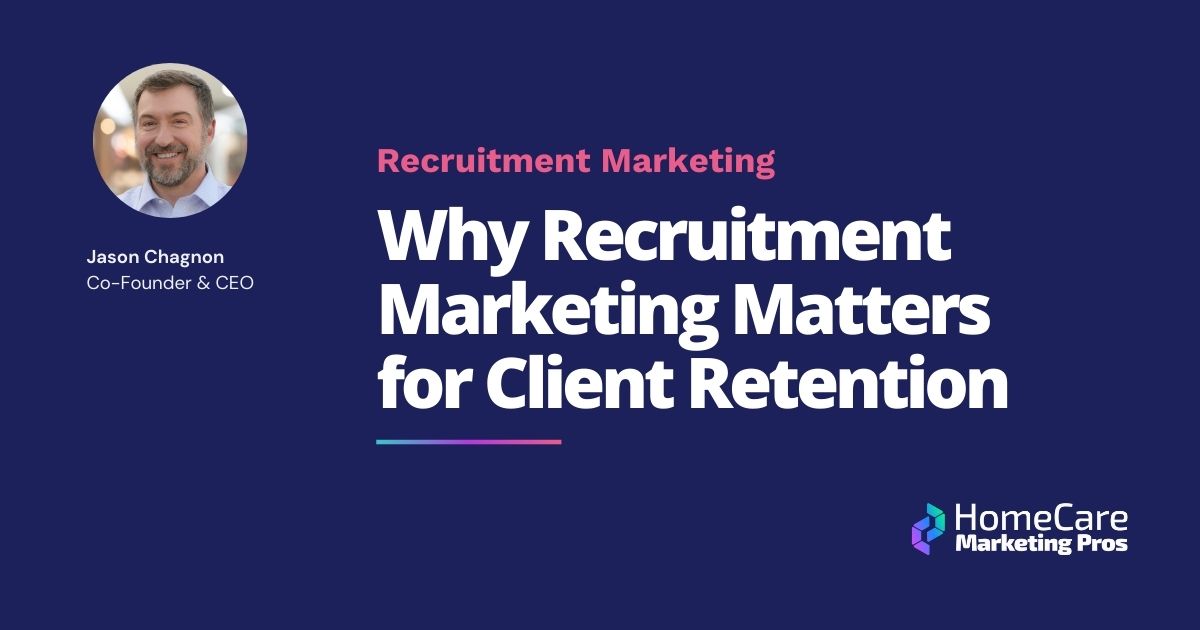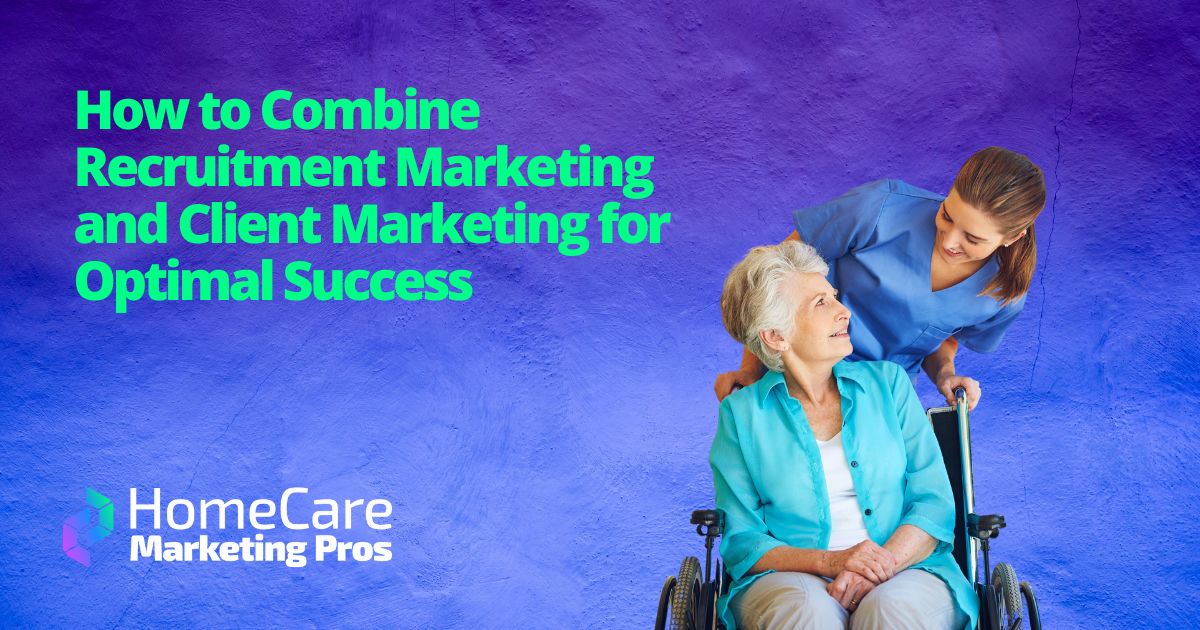Home Care Agency Reputation: Why Having an Employer Brand Helps When Recruiting Caregivers
How to use your caregiver recruiting strategy to generate client business
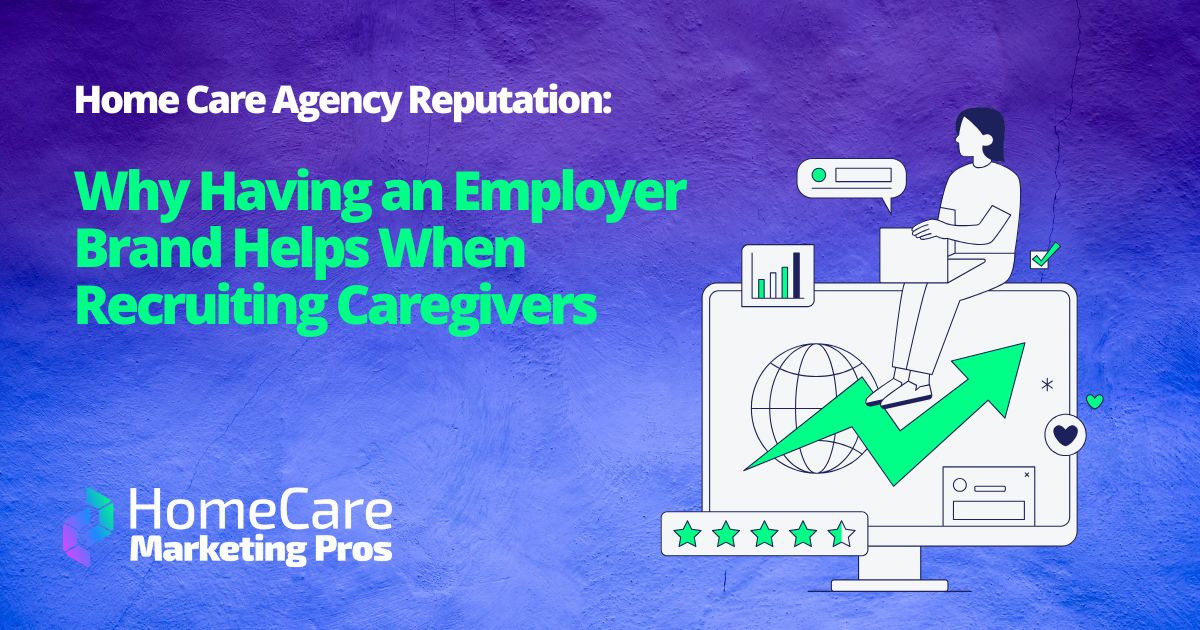
You probably know what your reputation is like among your current clients and even those in the community. But what do you know about your reputation as an employer?
The way your clients see your home care agency is an invaluable part of bringing in new business. The way you’re perceived as an employer affects your ability to hire top caregivers when you need them. Did you know that the two are inextricably linked?
What is an employer brand?
Your employer brand is the reputation your agency has with current and potential employees. It’s how you’re perceived as an employer: Do you pay well? Is agency leadership fair and supportive? Are caregivers happy to work there? Are there advancement opportunities? Is employee turnover high or low?
Your employer brand isn’t just influential for hiring new caregivers, it can also help you retain the ones you already have.
Who would you rather work for?
So, how does your employer brand affect hiring? Here’s an example.
Let’s say you’re a licensed CNA with ten years of experience in home care. You’re new in town and are looking for a job. After a decade on the job, you’re quite confident in your abilities, but now you want some career development opportunities and greater on-the-job responsibilities.
There are two popular home care agencies in your new hometown. Which one would you apply to?
- Agency A: Hoping to find open positions, you google Agency A and find positive reviews from clients at the top of the search results. On the agency’s website, there is a careers page with details about the company culture, values, compensation, training opportunities, and home care philosophy. There are pictures of real staff members and their testimonials about working at the agency. Some have even climbed the ranks. On their social media feeds, the agency recognizes its employees’ work with photos and endorsements. Even though they aren’t hiring at the moment, there is an invitation to send a resume and cover letter—just in case something opens up.
- Agency B: You’ve heard great things about agency B—a cousin used their companion care services for her mom a few years ago and was happy with the experience—but when you go to their website, it’s bare bones, with no information about employee benefits, compensation, training, or company culture. Their social media channels are regularly updated, but the feeds are mostly stock photos and information about home health best practices. It’s unclear whether they’re hiring at the moment, and even if they were, it’s hard to know how you would apply.
Agency A paints a picture of what it’s like to work there, while Agency B leaves potential caregivers wondering. When you cultivate a positive reputation as an employer, you’ll have an easier time recruiting caregivers.
What is a client brand?
Your client brand is your reputation among current and potential clients. It’s how you’re perceived as a service provider: What services do you offer? What is your philosophy of care? How responsive is your staff? How competent and consistent are your caregivers? Do your employees like working at your agency? Are you respected in your community as a healthcare provider?
Who would you rather hire?
Here’s a look at how your employer brand can affect your ability to attract new clients.
Let’s say you need to find at-home care for your aging mother. She was recently discharged from the hospital following a fall in her kitchen. You’re worried about her physical safety as well as her mental health—the fall was frightening and she’s mourning the loss of her independence. There are two popular home care agencies in your town. Which one do you hire to take care of your mom?
- Agency A: You’ve heard about Agency A from a colleague. On their website, there’s plenty of information about the origin of the agency, its services, and certifications, but there are only stock photos of caregivers and leaders, and there’s no information about standards of care. The company has social media accounts, but they haven’t been updated in months.
- Agency B: You found Agency B by googling ‘home care near me.’ There you found a Google Business Profile full of great photos—some are even of real caregivers who work at the agency—plus ample reviews. On the agency’s website, there are stories about the caregivers who work at the agency. Some have been there for a decade or more. You see they’re recruiting caregivers and are eager to hire the best ones around.
Agency A, operating without an employer brand strategy, doesn’t give potential clients any indication of who will be taking care of their loved ones. Agency B makes it clear that it cares about its clients—and its caregivers.
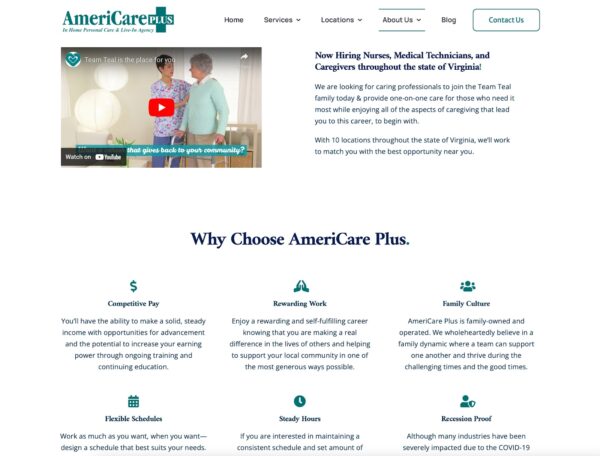
How your employer brand drives business
The two are inextricably linked. Without caregivers, there would be no home care agency.
When current and prospective clients understand how you hire caregivers, the standards you hold them to, and that they enjoy working for your agency, they’ll be more likely to choose you over a competitor.
Think of it this way: If you need someone to work on the plumbing in your home, which would you prefer? A company that diligently screens and trains its workers, and where those workers are happy—or a company that gives no indication at all about who it hires?
And don’t forget: Word of mouth matters. The caregivers who work for your agency will talk about their experience. This can affect the way you’re seen as an employer and as a service provider.
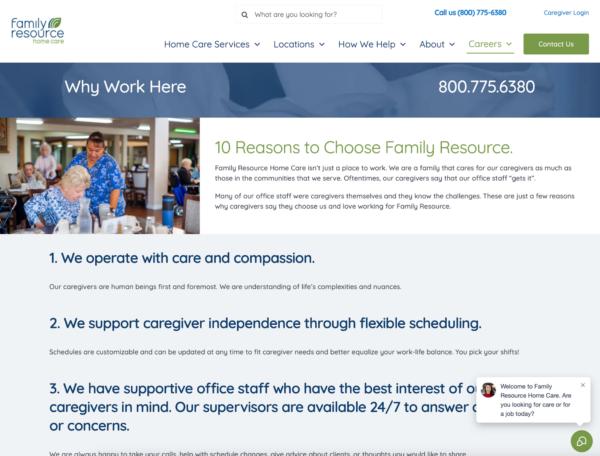
A few tips: How to use your employer brand to attract new home care business
Don’t wait until you’re hiring to launch your employer brand. Formulate a plan now. The next time you’re recruiting caregivers, you’ll be glad that you’ve cultivated your reputation as a great place to work.
- Be public and proud of your home care staff. Recognize their outstanding work on social media and on your home care website.
- Combine the two brands on social media, celebrating your caregivers in the same place you market your agency to new clients.
- Identify your employee value proposition or EVP. This is what your agency can offer caregivers that others cannot. Use this to guide your brand creation.
- Factor both brands into your SEO strategy. When leads search your agency online, they should find results associated with your services as well as your employee experience.
- Ask caregivers to review your agency on employee review sites like Glassdoor and Indeed. These pages often show up in the top Google search results when prospective clients are researching your agency.
- Be consistent in voice, tone, vocabulary, and visuals. Clients and caregivers should be able to recognize both your client and employer brand at a glance.
- Don’t overthink it. Employer branding doesn’t have to be time-consuming. You can get started by making a careers page on your home care website that features your agency’s core values and EVP. Add a few photos of your agency staff and press publish. You just get started.
Cultivate your employer brand, attract new clients
It’s time to cultivate your employer brand to attract great caregivers and new business. At Home Care Marketing Pros, our CareFunnels Recruit platform can help you kickstart and manage employer branding campaigns that show up in your hiring process—and on the bottom line.


